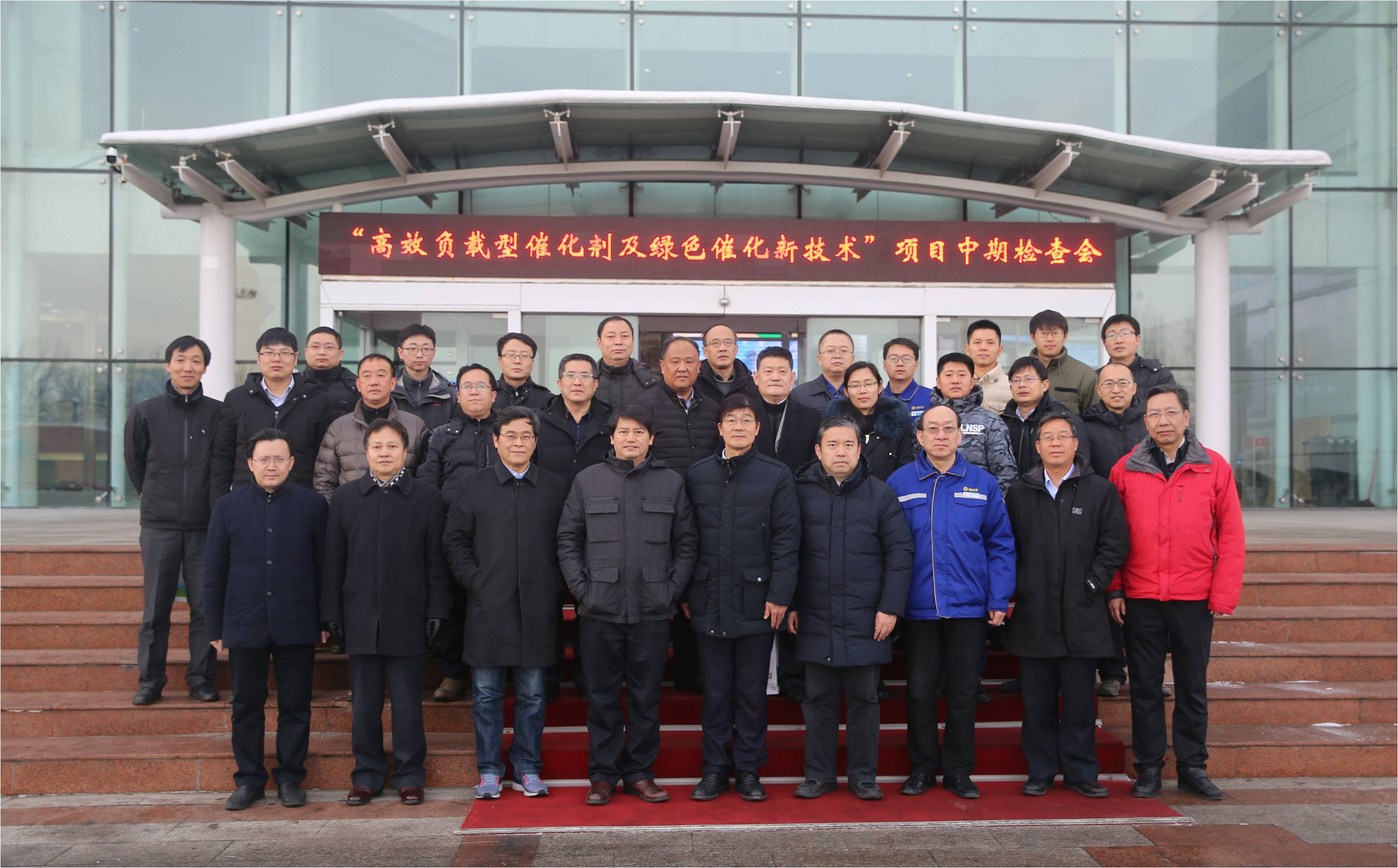On January 22, 2019, the Special Project Management Office (hereinafter referred to as Special Project Office) of the Key Basic Material Technology Improvement and Industrialization special project organized by the High-Tech Center of the Ministry of Science and Technology conducted a mid-term inspection on the High-Efficiency Supported Catalysts and Green Catalytic New Technologies project undertaken by Professor Li Dianqing from the School of Science at our university in Shihezi City, Xinjiang Uygur Autonomous Region. Experts from the overall expert group of the special project, peer experts, management experts, and other members of the inspection team, as well as the main members of the project team, attended the meeting, and relevant personnel from the Special Project Office were present.

The mid-term inspection was conducted through on-site checks and reporting exchanges during the meeting. At the meeting, Professor Li Dianqing, the project leader, reported on the overall progress of the project, the input of personnel and funds, the supporting conditions for the project, and the organization and management of the project's implementation. The inspection team experts inquired and discussed the implementation of the project and offered constructive suggestions for the subsequent refinement of high-efficiency supported catalysts and the innovation of key common new technologies in green catalysis, as well as for accelerating the transformation and application of the project's results. The expert group believes that the project is progressing as planned, has completed the mid-term research tasks, and has achieved the expected goals and assessment targets.

The project focused on high-efficiency supported catalysts and green catalytic new technologies, conducting research on the green synthesis of four chemicals: hydrogen peroxide, vinyl chloride, adiponitrile, and 2,3,5-trimethylhydroquinone. It developed high-efficiency catalysts and key preparation technologies for their synthesis, as well as techniques for scale-up and engineering studies. Six industrial pilot or production demonstration units were established for the fixed-bed process of hydrogen peroxide and related catalyst preparations. The project developed four new types of alumina-based carrier materials and created seven types of supported catalysts with high dispersion of active components. It built a 300t/a alumina carrier unit, a 300t/a palladium-loaded catalyst unit, a 500t/a layered precursor unit, and two 200,000t/a fixed-bed anthraquinone process hydrogen peroxide industrial demonstration units. It completed a 18,000-hour side-line test for mercury-free precious metal catalysts in the production of vinyl chloride and built a 5,000t/a mercury-free catalytic synthesis vinyl chloride industrial demonstration platform. It also developed catalysts for the oxidation of 2,3,6-trimethylphenol, hydrogenation catalysts, and separation and purification engineering technologies, and built a 2,000t/a pilot demonstration unit for the preparation of 2,3,5-trimethylhydroquinone.
